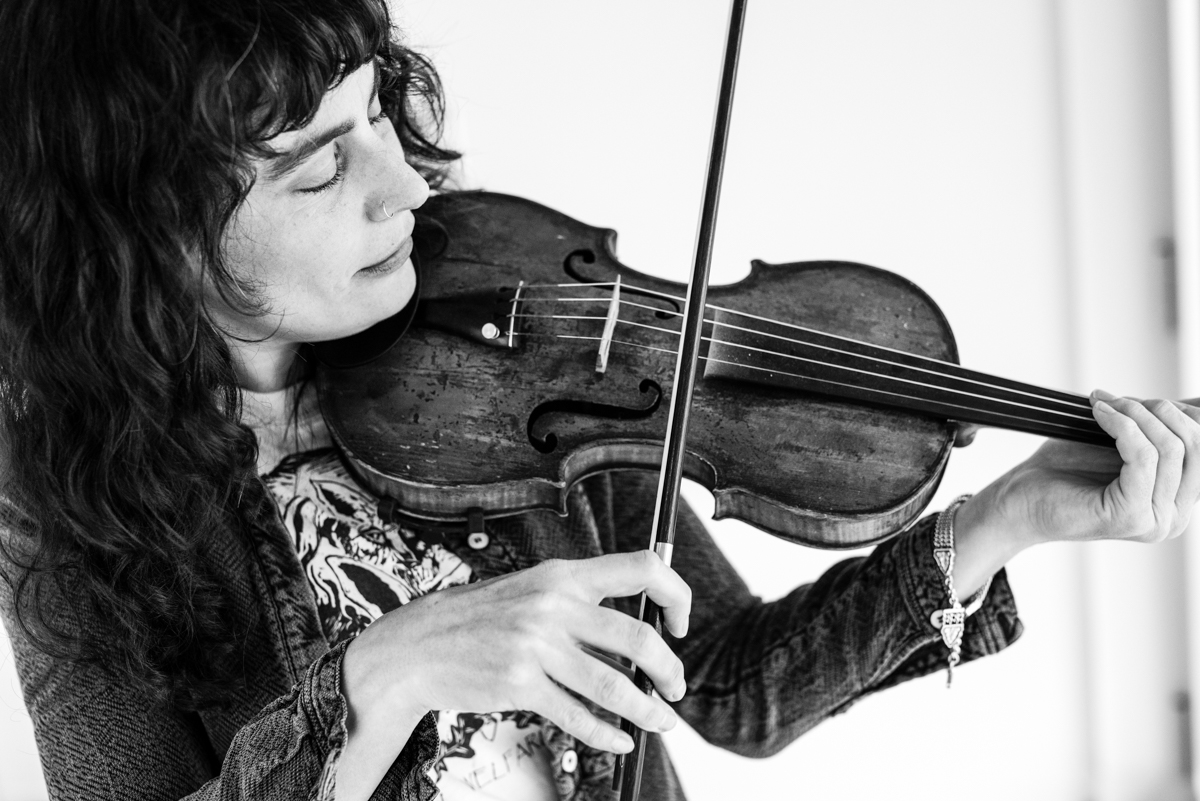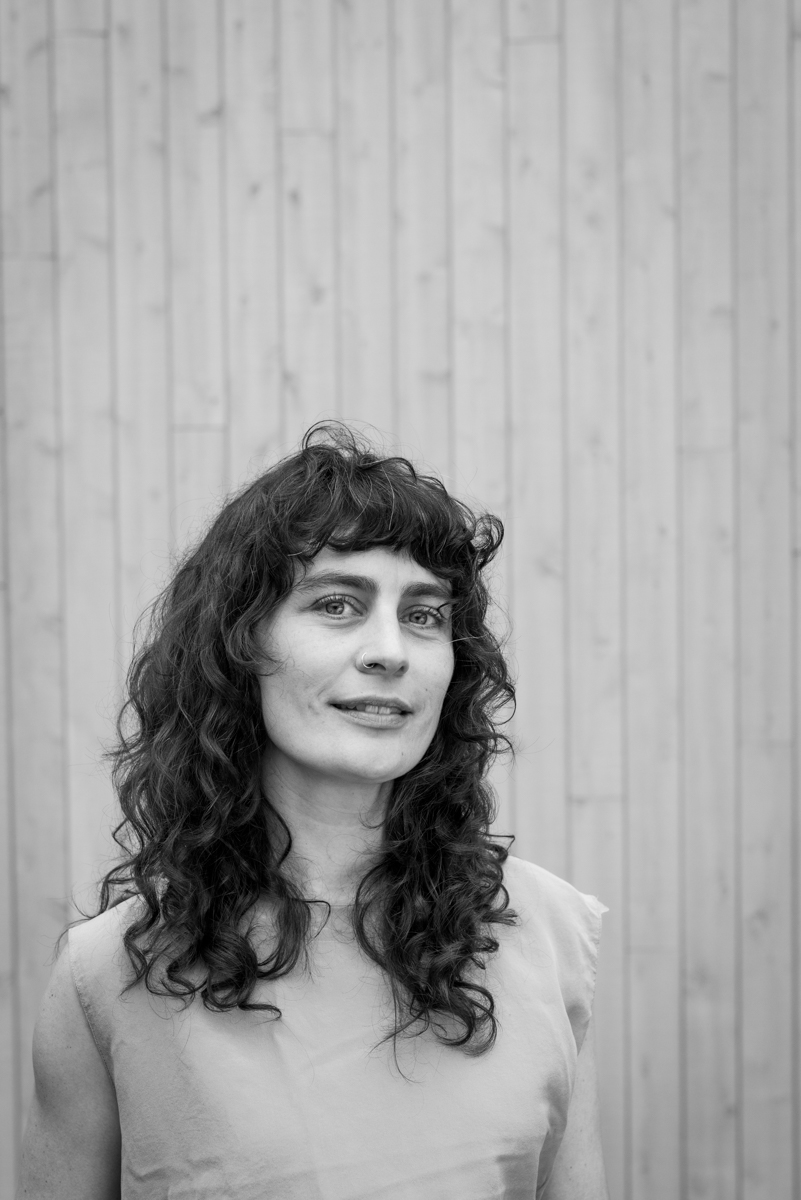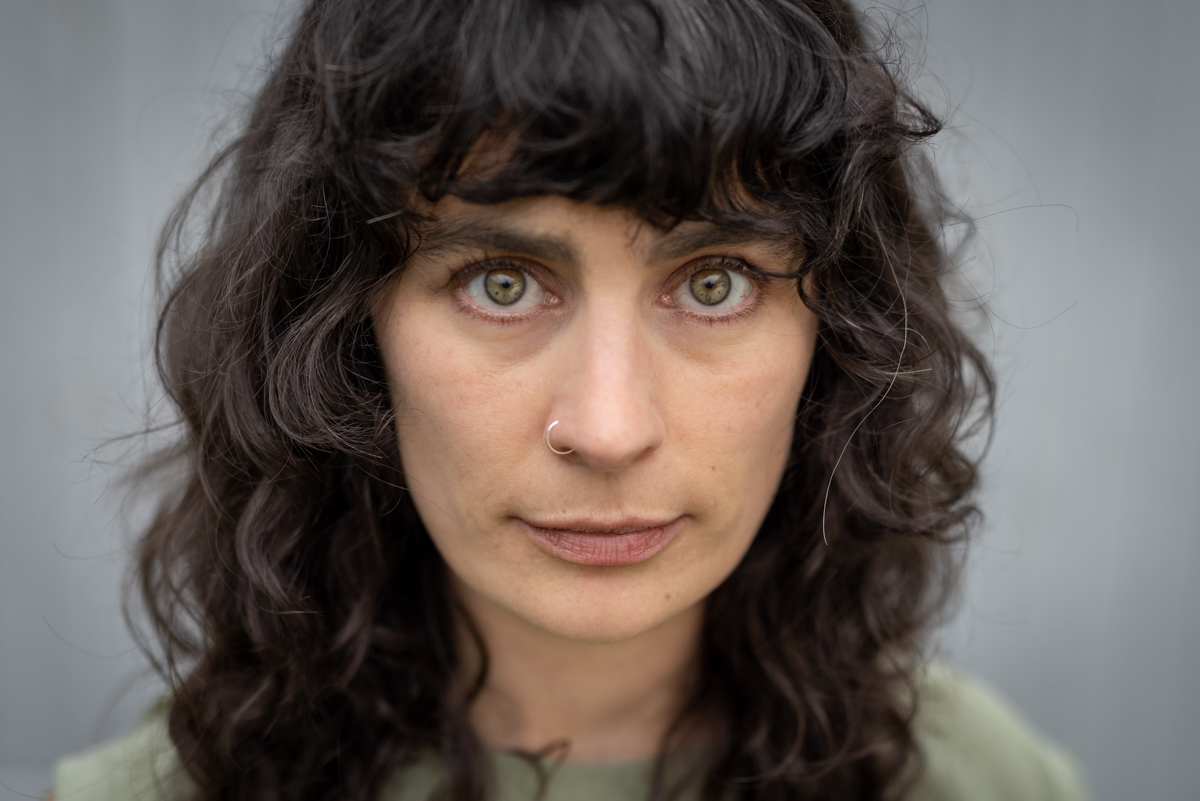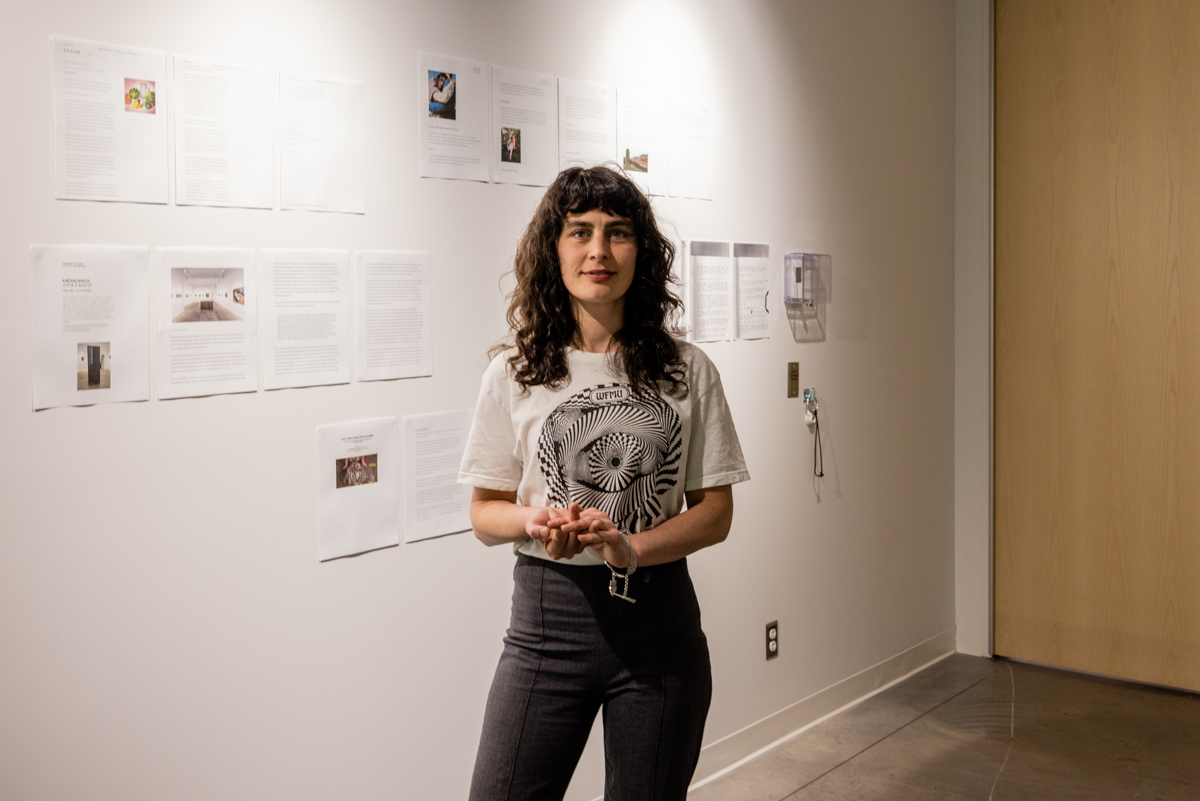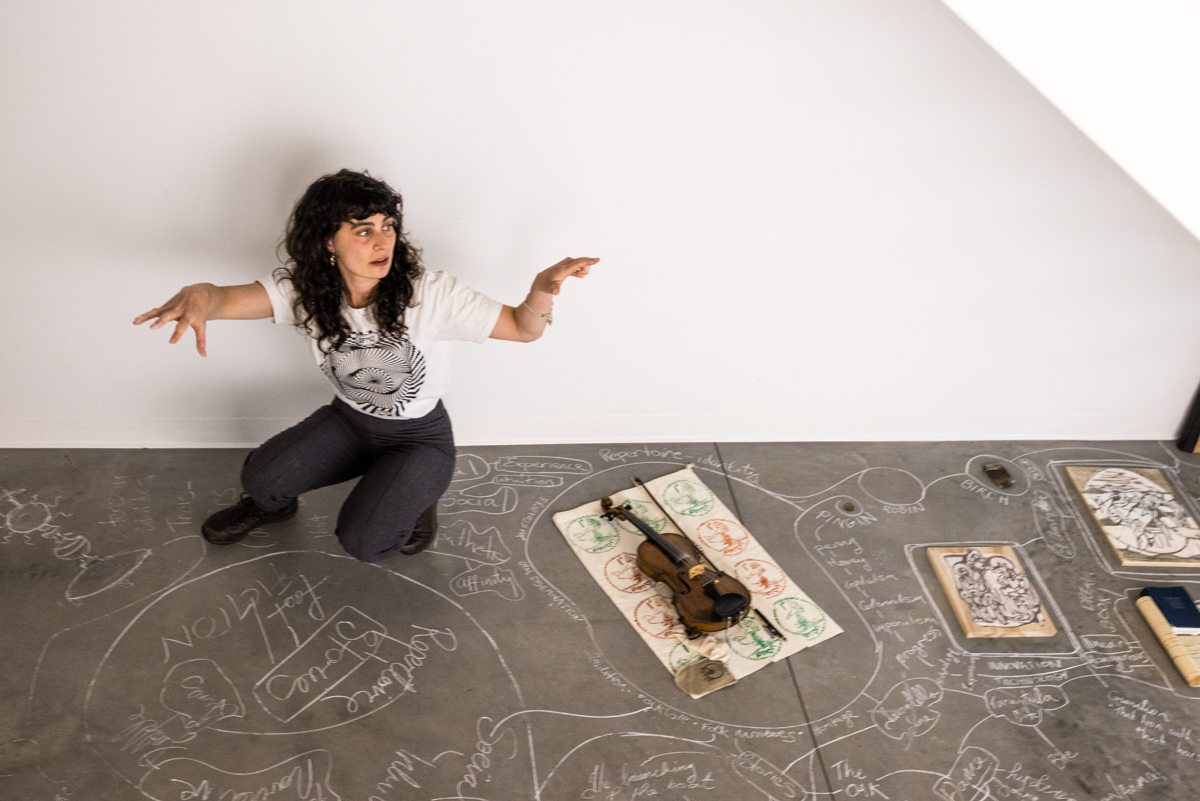Ingrid Lyons
Testimony
The Irish author Ingrid Lyons is developing a form of writing directly engaged with art. During her residency, she wrote a series of texts about art and culture intended for various contexts: book, website, exhibition. Sensitive to creating spaces of dialogue with artists, she adapts her practice to the realities and relationships that she fosters with them, and she contributes to certain art projects, for example, by integrating texts with music and dance pieces.
Working from narratives in the Irish imagination and popular culture, Ingrid updates our interpretations of them. Her writing flows from research anchored in her experience of the territory. A process of collecting objects and forgotten melodies leads her to create situated stories. As she is also a musician, she is particularly interested in pieces from southwest Ireland in the Donegal style, which she plays on the violin. This musical style – related to jigs and reels, inscribed in the territory and the cultural practices linked to it – carries memories that feed into her writings, reviving neglected stories that she redeploys in critical and contemporary perspectives.
Her approach to writing is defined through a process that brings fiction and the art essay together. Throughout her residency, she therefore pursued explorations that could be manifested in both fictional works and critical essays.
Biography
Ingrid Lyons (b.1985) lives and works in Dublin, she writes about contemporary art and culture and is currently developing a number of works in fiction and art adjacent writing. Lyons frequently contributes to some of Ireland’s leading art publications including the Visual Artists’ News Sheet, Mirror Lamp Press and the Irish Arts Review. She has written for numerous art galleries and institutions in Ireland and internationally. Lyons is interested in developing and distilling a writing practice that incorporates fictional literature and immersive research practices such as oral history collecting and musical collaboration to compliment more traditional academic research methodologies.
Discover
Newsletter
Keep up to date with the latest news!
